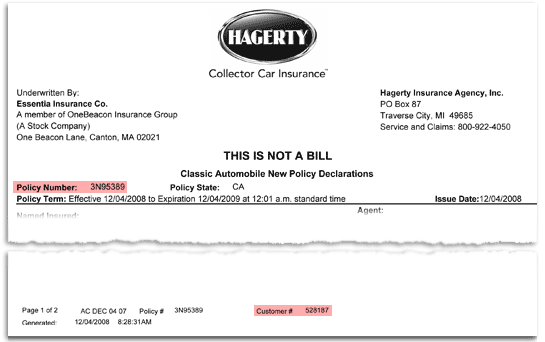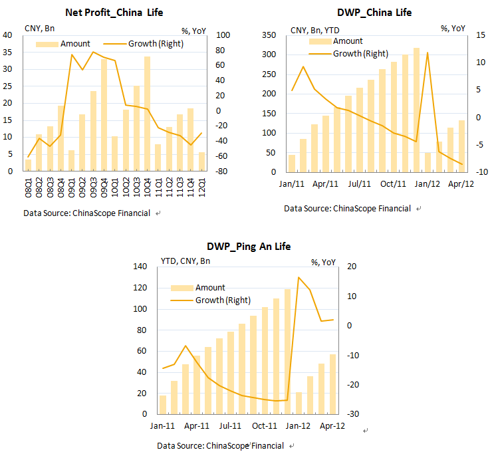Explain Deductible

Deductible Technical Terms
Deductible : An amount specified in the insurance policy, that the insured must pay before the policy responds to a claim.
Remember Declaration Page

Declaration Page Technical Terms
Declaration Page : This page(s) provides the key information defining the insured property, including the name of the insured, the location of the insured premises, the time period of coverage, and the limits provided for a particular policyholder. Other parties whose interests are protected, e.g. lenders and additional insureds, may be listed. This page normally also lists all the policy forms and endorsements that are part of the policy, through a list of the relevant numbers.
Expose Debris Removal

Debris Removal Technical Terms
Debris Removal : This coverage pays to remove damaged property, up to the state policy limits for such removal, and must result from a Covered Cause of Loss.
Explain Damage By The Elements

Damage By The Elements Technical Terms
Damage By The Elements : A descriptive phrase often found in insurance policies referring to losses caused by weather or other natural forces.
Discover Cross Liability

Cross Liability Technical Terms
Cross Liability : This refers to the endorsement or other policy language that provides defense when one insured party sues another. Normally a policy covers only actions by "others"; in Community Associations parties that are both insureds may have separate interests and thus merit this extension of coverage.
Remember Crime

Crime Technical Terms
Crime : This term references the coverage also know as employee dishonesty or fidelity bonds. These are designed to protect the insured against theft, embezzlement, or other misappropriation of Association funds or property by the Association employees, or other defined parties. Also included in crime coverages can be Money and Securities and Depositors’ Forgery.
Discover Coverage Trigger

Coverage Trigger Technical Terms
Coverage Trigger : Liability coverage can be triggered in two ways, either occurrence or claims made. (See these terms for definitions.) The coverage trigger determines which liability policy will respond to a claim.
Explain Contractual Liability

Contractual Liability Technical Terms
Contractual Liability : Liability that arises from the breach of a written or oral contract. All insureds should exercise care because the definition of an insured contract in an insurance policy is quite specific and will not include many incidents of breach and many forms of contract.
Remember Computer Fraud

Computer Fraud Technical Terms
Computer Fraud : A possible source of loss that may be covered by certain insurance policies, either multiperil policies or special form such as EDP. In essence the insurance pays for losses that result by illegal use of computers for theft or other damages. The cover will not pay for Y2K losses.
Remember Commercial General Liability/Cgl

Commercial General Liability/Cgl Technical Terms
Commercial General Liability/Cgl : This type of liability is normally part of the Association’s package or master policy. It includes four kinds of legal liability: bodily injury, personal injury, advertising injury, and property damage. In addition, it provides medical payments. When one of these legal liabilities is alleged, CGL provides the Association and other named insureds with defense and damages. It does not include wrongful acts. It was formerly referred to as Comprehensive General Liability.
Explain Special Form

Special Form Technical Terms
Special Form: This form (also known as "all risk", "Open cause of loss", or "Risk of Direct Physical Loss") includes coverage for accidental, direct physical loss from any event that is not specifically excluded or limited. The exclusions vary from company to company; many use Customized Forms. Such forms are subject to a standard set of exclusions including war, nuclear accidents, vermin and rodents, wear and tear, settling, flood and earthquake, landslide, and errors in construction and design. Some such exclusions can be removed by endorsement or purchase of policy forms such as DIC. (See DIC)
Discover Co-Insurance (Also See Agreed Amount)

Co-Insurance (Also See Agreed Amount) Technical Terms
Co-Insurance (Also See Agreed Amount) : This is a mechanism used to involve the insured as a co-payer in the event that the limit of insurance on a particular property is not equal to full replacement cost or some defined percentage of replacement cost. It is designed to avoid underinsuring a property and to penalize an insured should a property be underinsured by paying on a proportionate share of a loss. Such an endorsement should be avoided in community association insurance.
Expose Claims Made Liability

Claims Made Liability Technical Terms
Claims Made Liability : One of two forms of coverage trigger for liability. The policy covers claims made or presented only during the time the policy is in force. That time may be extended or limited by a "tail" or "retroactive date". Typically once the period covered has expired the next policy, if also a claims made form, will cover the acts which occurred in the prior period but were not reported until the current period. This form is typically used for D&O policies and certain types of high exposure general liability coverages. This form limits exposure for the insurance company. Care is required in switching between the forms.
Expose Claim Reserve

Claim Reserve Technical Terms
Claim Reserve : Amount defined by an insurance company as the expected payment on a particular claim. This amount is normally included in calculation of the Loss Ratio.
Remember Cause Of Loss

Cause Of Loss Technical Terms
Cause Of Loss : Formerly know as "peril", cause of loss is the sudden and accidental event, which starts the damage to the insured property, e.g. fire, windstorm, earthquake, and war. Only certain causes of loss are insured. Policy forms use two techniques to distinguish insured from uninsured causes of loss. One has been known as "Named Peril" or closed, because it lists the causes of loss, which it insures. This includes the basic and broad forms below. The second technique formerly was known as "All-Risk" and is sometimes called "Risk of Direct Physical Loss". This form covers all causes of loss except those specifically limited or excluded.
Discover Care, Custody, & Control

Care, Custody, & Control Technical Terms
Care, Custody, & Control : A phrase which describes the fact that certain property belonging to one party is held by another, voluntarily, and under the second party’s control. Normally such property is limited within a property policy, unless specifically increased, e.g. with Bailee’s Coverage.
Remember Casualty Insurance

Casualty Insurance Technical Terms
Casualty Insurance : The type of insurance that is primarily concerned with the legal liability for losses caused by injury to persons or damage to property of others. Contrast with Property Insurance.
Discover Broker

Broker Technical Terms
Broker : An individual or firm representing an insured rather than a company and acting on behalf of the customer. See Agent.
Expose Broad Form

Broad Form Technical Terms
Broad Form : A form of property insurance described under Cause of Loss.
Discover Boiler And Machinery Insurance (Aka Mechanical Breakdown)

Boiler And Machinery Insurance (Aka Mechanical Breakdown) Technical Terms
Boiler And Machinery Insurance (Aka Mechanical Breakdown) : This form provides physical damage coverage for certain sudden and accidental events that originate inside the machinery or electrical apparatus, such as mechanical breakdown or electrical arcing. The coverage will also include damage caused by explosion of steam boilers. With changing technology, the coverage more common applies to elevators, generators, chillers, alarm systems, transformers, and other electronic gadgetry.
Expose Bodily Injury

Bodily Injury Technical Terms
Bodily Injury : A term defined within a CGL policy, this is part of the coverage offered and refers to bodily injury, sickness or disease suffered by a person and includes death. The term is distinct from Property Damage and Personal Injury.
Remember Blanket Value (Also See Blanket Coverage)

Blanket Value (Also See Blanket Coverage) Technical Terms
Blanket Value (Also See Blanket Coverage): Limit used when blanket coverage is in place.
Explain Blanket Employee Dishonesty (See Crime, Fidelity Coverage)
Blanket Employee Dishonesty (See Crime, Fidelity Coverage) Technical Terms
Blanket Employee Dishonesty (See Crime, Fidelity Coverage) : Another term for crime or fidelity coverage. The form provides protection to the insured against losses that result due to theft or misappropriation of funds or other property by employees. This coverage is mandated by the secondary mortgage market, some state law, many CC&Rs, and good business judgment. It is strongly recommended that the definition of insured be modified to include Directors, Officers, and certain volunteers.
Explain Blanket Coverage (Also See Master Policy)

Blanket Coverage (Also See Master Policy) Technical Terms
Blanket Coverage (Also See Master Policy) : A form of property coverage in which multiple units or buildings are insured with one single limit and on one form rather than having separate scheduled limits for each building or separate policies for each. In an Association such a form provides some margin of error in limits used and is to be recommended.
Explain Binder

Binder Technical Terms
Binder : A form providing temporary proof of insurance pending the issuance of the actual policy. It must be in writing and is not a full contract of insurance.
Discover Bare Walls

Bare Walls Technical Terms
Bare Walls : A term used to describe a property policy that insures just the common elements and provides no coverage for the interiors or contents of a unit.
Remember Bailee’s Coverage (See Receiving Room Coverage)

Bailee’s Coverage (See Receiving Room Coverage) Technical Terms
Bailee’s Coverage (See Receiving Room Coverage) : Insurance purchased by an entity such as an Association to pay for loss or damage to property of others within the care of the entity. A typical case would be in an Association that had a receiving room or that accepted deliveries for a unit owner at the gatehouse or front desk.
Remember Back Up Of Sewers And Drains (Also See Flood)

Back Up Of Sewers And Drains (Also See Flood) Technical Terms
Back Up Of Sewers And Drains (Also See Flood) : A condition in which water (possibly plus other materials) enters a premises through a drain or sewer because of blockage or super saturation.
Explain Automobile Policy (Aka Vehicle Policy)

Automobile Policy (Aka Vehicle Policy) Technical Terms
Automobile Policy (Aka Vehicle Policy) : An insurance policy that protects an automobile or other land vehicle and its usage. It may be incorporated into a package or other program, but usually is independent. Association policies usually include Hired and Non Owned Automobile Coverage, even when no vehicles are owned; this coverage may or may not be included on an automobile policy.
Expose Automatic Insured

Automatic Insured Technical Terms
Automatic Insured : Those entities or individuals who are provided with limited insured status in a liability policy without being specifically added. Normally their relationship is a close one to the Named Insured, e.g. as directors, employees, or property manager.
Explain Automatic Coverage

Automatic Coverage Technical Terms
Automatic Coverage : Coverage that is included without being specifically selected or charged for.
Explain Association Insurance Policy* (Aka Master Policy)

Association Insurance Policy* (Aka Master Policy) Technical Terms
Association Insurance Policy* (Aka Master Policy) : A written contract combining liability and property protection into one document and designed to cover common areas of a community association, usually including the structure(s), and take precedence over unit owners’ policies.
Expose All Risk - (See Scope And Special Form)

All Risk - (See Scope And Special Form) Technical Terms
All Risk - (See Scope And Special Form) : This term is rarely used today since it implies that all risks are covered when they are not. The intent is that the policy covers all except those which are specifically excluded or limited. Today "Special Form" or "Risk of Direct Physical Loss" is the preferred terminology.
Discover All-In Basis

All-In Basis Technical Terms
All-In Basis : A policy that provides property coverage, which insures common elements, units, and unit owner improvements and building upgrades. The term varies from company to company; therefore we advise reading the policy provisions carefully.
Discover Agreed Amount

Agreed Amount Technical Terms
Agreed Amount : A clause in a property policy, which waives the co-insurance clause. With it in place, the policy can be expected to pay the stated limit on the policy. Those policies that do not have a co-insurance clause do not need agreed amount clauses.
Explain Aggregate

Aggregate Technical Terms
Aggregate : The aggregate is the maximum limit that will be paid during a specified period of time, normally the term of a policy. It is most often found in liability policies.
Discover Agent

Agent Technical Terms
Agent : An individual who acts as the representative of another. In contrast to a broker, an insurance agent represents the interest of the insurance company, not the community association.
Remember Advertising Injury/ Ai

Advertising Injury/ Ai Technical Terms
Advertising Injury/ Ai: AI responds to slander, defamation, and similar injuries when made in written or published form. This could occur in an association newsletter.
Expose Additions And Alterations
Additions And Alterations Technical Terms
Additions And Alterations : See Improvements and Betterments for an explanation of this term. While the terms are not identical, they are often usually interchangeably.
Explain Additional Insured (Aka Additional Person Insured)

Additional Insured (Aka Additional Person Insured) Technical Terms
Additional Insured (Aka Additional Person Insured) : A person or entity, other than the Named Insured, who may be protected by some of the terms of the policy. The additional insured may be a spouse, member of the family, unit owner, committee member, officer, or real estate manager.
Expose Actual Cash Value/ Acv

Actual Cash Value/ Acv Technical Terms
Actual Cash Value/ Acv : ACV is the depreciated value of property and is normally representative of the remaining useful life of the property in question. ACV will not replace the property. Unlike accounting practices, the insurance industry depreciates from the current replacement cost rather than the original cost.
Explain Accounts Receivable

Accounts Receivable Technical Terms
Accounts Receivable : Funds due to the Association; their receipt or replacement of the records of that which is due may be covered in an insurance policy.
Discover Written premiums

Written premiums Technical Terms
Written premiums: The total premiums on all policies written by an insurer during a specified period of time, regardless of what proportion has been earned. See earned premiums
Expose Written Line

Written Line Technical Terms
Written Line: The percentage written by underwriters on a placing slip to indicate the proportion of the sum insured and which they are prepared to accept.
Remember Write-off

Write-off Technical Terms
Write-off : (usually associated with motor vehicle insurance) - Your car is declared a write-off when in our opinion, it is so badly damaged that it would not be either safe or economical to repair or when it has not been found within 14 days of you reporting its theft to us.
Discover Warranty

Warranty Technical Terms
Warranty: A policy term setting out an obligation that the insured must comply with, either to do something, or refrain from doing something, or stating that some condition will be fulfilled. A warranty can also be a statement affirming the existence of certain facts.
Explain Waiting period

Waiting period Technical Terms
Waiting period: A period of time set forth in a policy that must pass before some or all coverage does begin. It can be thought of as a time excess. It is sometimes referred to as a deferment period.
Explain Voidable contract

Voidable contract Technical Terms
Voidable contract: A contract which can be avoided by one party.
Explain Void contract

Void contract Technical Terms
Void contract: A contract which can be treated as if it never existed.


